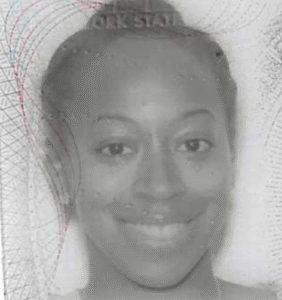-
Birth name
Tonya Latoya Maynard
-
Place of Birth
Queens, New York , USA
-
TRIBAL AFFILIATION
Arawak/Taino
-
SURNAME HERITAGE
England Ireland Scotland

Maynard History, Family Crest & Coats of Arms
Etymology of Maynard
What does the name Maynard mean?
Maynard is an ancient name whose history on English soil dates back to the wave of emigration that followed the Norman Conquest of England in 1066. The name comes from the Germanic personal name Mainard, which is composed of the elements magin, which means strength, and hard, which means hardy, brave or strong. 1
Two sources note entries in the Domesday Book of 1086. 2 The first notes that ” ‘Mainardus homo Rogeri Pictavensis,’ is mentioned in the Domesday as an under-tenant in Essex and Lincolnshire; and either he or another of the name held Wilts, Hants, and Norfolk, before the Conquest. The early notices of the name are scanty. ‘In the hydarium of Henry III. Maynard was certified to hold one hide and half in ‘Cherleton’ (Charlton), but as the paramountcy of the estate is withheld, no clue is furnished for tracing it to the Domesday lord.” 3
The second notes Meinardus uigil in Norfolk in the Domesday Book. 4 Presumably both entries are related but translations from ancient Latin to English are not consistent.
Early Origins of the Maynard family
The surname Maynard was first found in Suffolk at Hoxne, a parish, and the head of a union, in the hundred of Hoxne. “Hoxne Hall, for many generations the residence of the Maynard family. In the north aisle [of the church] is a monument, with a group of figures finely sculptured in marble, to the memory of Sir Thomas Maynard, erected in 1742, by Christopher Stanley, Esq. A school, now in union with the National Society, was founded and endowed by Lord Maynard.” 5
“The pedigree of the Viscounts Maynard commences in the 14th century with John Mainard of Axminster in Devonshire, who served in France under the Black Prince, and was appointed Constable of Brest in 1352. Sixth in descent from him we find another John Maynard, sitting in Queen Mary’s first Parliament as Burgess for St. Albans, and numbered among thirty-nine stout Protestants who were indicted in the King’s Bench for absenting themselves from the House rather than join in accepting the Pope’s authority in the realm.” 3
Early record were also found in Scotland. “Bishop Robert was about to set the municipal machinery of St. Andrews in motion (c. 1144) he obtained from the king the services of Mainard, a burgess of Berwick: ‘Be it known that with the licence of David our king, I have constituted St. Andrews a burgh and that with the king’s consent I have made Mainard the Fleming (Matnardum Flandrensem) provost of this burgh’. Robert Mainard was one of the witnesses to a charter by John de Dundemor to the Priory of May in 1260.” 6
Multitudes of spelling variations are a hallmark of Anglo Norman names. Most of these names evolved in the 11th and 12th century, in the time after the Normans introduced their own Norman French language into a country where Old and Middle English had no spelling rules and the languages of the court were French and Latin. To make matters worse, medieval scribes spelled words according to sound, so names frequently appeared differently in the various documents in which they were recorded. The name was spelled Maynard, Mainard and others.


